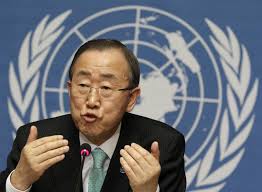How easy was it to start up a blog and start to use twitter?
Going to be completely honest here – I would rather write an essay than blog. Crazy, I know! But I will give this blogging thing a fair go in the hope that i’ll become more comfortable with it. I dropped my Communications and Media degree simply because I found that blogging was not for me. However, as the United Nations and human rights are topics that I am very passionate about, I’m sure this will warm to me. It’s not as if I lack thoughts and opinions on these topics, its merely the thought of having to share them with others that I find so dreaded! In terms of setting up my blog, this was no problem. Easy peasy. Getting my first words on the page however… a different story.
Tweeting, a very distant, foreign concept to me. It will take me a little bit of time to get used to it. However, so far, so good. I realise now, after doing a fair bit of exploring (or stalking- not sure if this applies to twitter or just Facebook) the value of twitter in keeping up to date on matters in international relations. Not only am I surprised at how vigilant some heads of state are with their rapid and constant tweeting but how slow I’ve been to get in on it!
What key new things have you learnt about the United Nations?
Prior to starting this subject, I did have a fair bit of basic knowledge on the United Nations’ origins, systems and workings. 3 weeks in too this subject however, I’ve realised how useful the study of international relations theories can be in understanding the justifications and workings of individuals, states and the United Nations itself. Through this I’ve learnt that the United Nations cannot be classed as merely liberal, as although it was founded upon liberal values and intentions, in practice in diplomacy and peacekeeping its realist nature is often revealed, evidently through the Security Council.
Which area of the United Nations would you most like to get a job and why?
One of the key reasons I chose this subject was to give me a better idea on where I would like to go with my International Studies course and international relations major. I am no closer to coming to any conclusion on this matter however after listening to Susan Engels interview with Stephen Hill who was the Regional Director and Ambassador for the United Nations Educational, Scientific and Cultural Organization (UNESCO) this seems like an area that appeals to me.
Aswell as this, for quite some time I’ve had a key interest/concern in the area of human trafficking. Working for the UNODC – United Nations Office on Drugs and Crime. I encourage anyone who hasn’t seen the movie The Whistleblower to watch it. Based on a true story, although dramatized. This article from the Guardian also gives a good overview on the movie and its relation to the reality of human trafficking today. http://www.theguardian.com/world/2012/jan/15/bosnia-sex-trafficking-whistleblower
